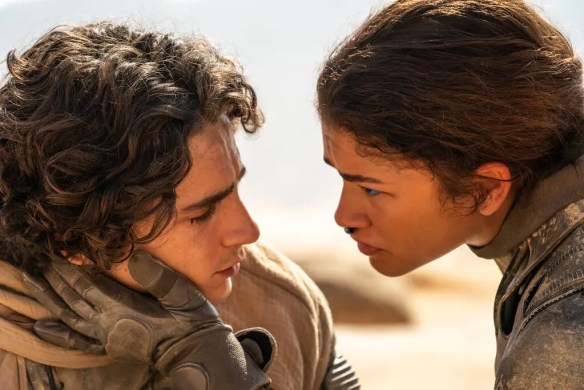We squeezed in a trip to the local movie house to see the live action shorts the day before the awards ceremony. They were all fresh in our minds, and we both felt the Oscar went to the least interesting of them! Nevertheless, there’s something watchable for people of widely varying tastes. A characteristic common to four of the five nominees was that the ending was notably ambiguous. What happens next? We don’t know. Also, this year, none of them was particularly long. They’re in theaters so briefly, in case you missed them, here they are and how you can see them.
A Lien (USA)

A terrifying look at how America’s immigration crackdowns wield law and policy in unfair and dehumanizing ways. It involves a young couple—she’s American; he’s from Central America and has lived here for decades—visiting an immigration center with all their paperwork so he can get the green card he’s absolutely eligible for. What’s scariest is that you feel that such things happen not because the system is broken, but because it’s operating exactly as intended. (Watch it here.)
Anuja (India, USA)
Nine-year-old Anuja must choose between going to work in a sewing factory with her older sister and taking a test that may get her into a tuition-free school for gifted students. It’s a choice between the demands of the here-and-now versus the possibility of greater benefit in the future. The sisters—played by real-life street children—are charming. (Available for viewing on Netflix)
The Last Ranger (South Africa)
At a South African wildlife preserve, rangers engage in the dangerous job of protecting rhinoceroses from poachers. Stealing the horn is a lucrative business, and the film never lets you forget how noble are the rangers and how evil are the poachers. A young girl goes with the ranger one day. She’s charming, and the scenery is spectacular. (Apparently not available for streaming)
The Man Who Could Not Remain Silent (Croatia)
In 1993, a passenger train crossing Bosnia-Herzegovina is stopped by armed paramilitaries. They board, demanding to examine people’s papers. This conjures memories of every “escape from Nazi Germany” movie you ever saw. The people sharing a compartment with a man who admits he has no papers have to make choices, silence or courage. Based on the real-life Štrpci massacre and the death of Tomo Buzov, a former Yugoslav army officer. The film won the Short Film Palme d’Or at Cannes in 2024. (Watch it here.)
And now the winner: I’m Not a Robot (Belgium, Netherlands)
We see the action from the point of view of a woman working in the music business who fails her CAPTCHA test so many times her computer concludes she’s a robot. The absurdity of the situation spirals downward, as her grip on reality loosens. I wasn’t convinced. (See it here.)













